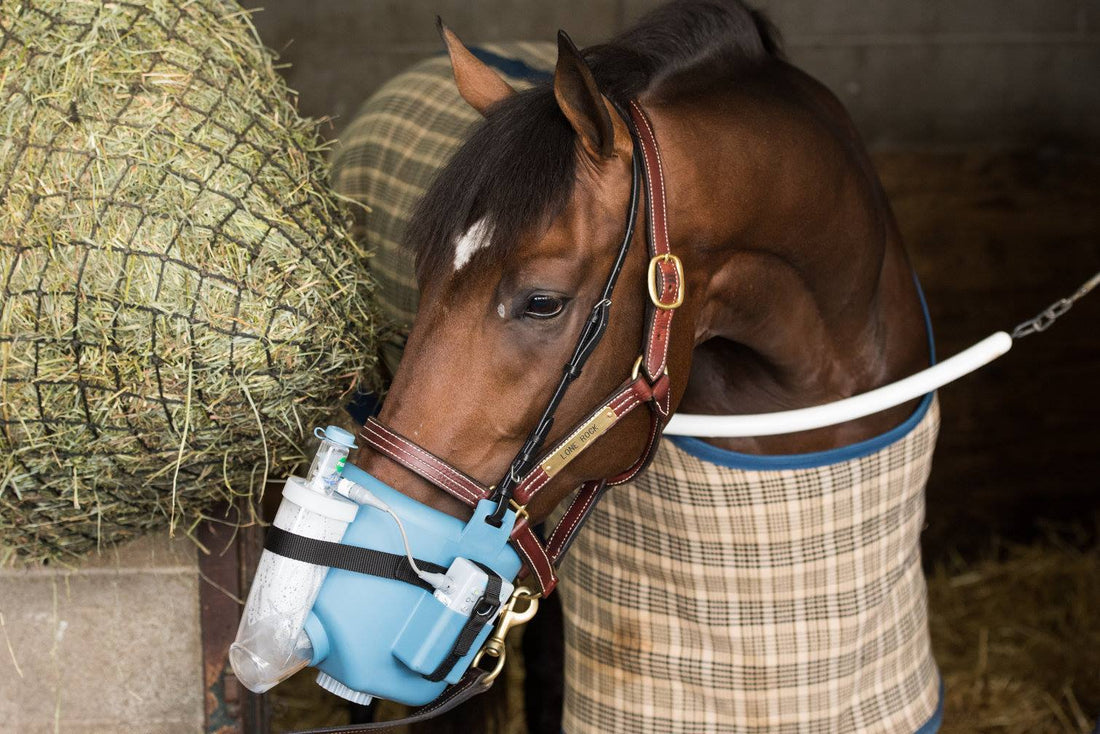As horse owners and caretakers, we know that equine health and wellness is of the utmost importance. One critical aspect of a horse's overall health is their respiratory health. In this blog post, we will explore the significance of respiratory health for horses, discuss the common respiratory issues faced by equines, and offer solutions for maintaining respiratory health.
Why is Respiratory Health Important for Horses?
Respiratory health is crucial for horses as it impacts their overall wellbeing and athletic performance. A horse's respiratory system plays a significant role in delivering oxygen to the body and removing waste products such as carbon dioxide. If a horse's respiratory system is compromised, their performance and overall health can be affected.

Common Respiratory Issues Faced by Equines
Equines can suffer from various respiratory issues including Asthma (severe or mild to moderate), EIPH (exercise induced pulmonary hemorrhage or bleeding) and infections (viral, bacterial and fungal). These respiratory issues can cause symptoms such as coughing, wheezing, nasal discharge, difficulty breathing and poor performance.
One common cause of respiratory issues in horses is poor air quality, which can be caused by factors such as poor ventilation, dusty hay and bedding, and exposure to mold and other irritants. Horses that are stabled for extended periods are particularly susceptible to respiratory issues due to their prolonged exposure to these irritants.

Solutions for Maintaining Respiratory Health
Maintaining respiratory health in horses is crucial for their overall wellbeing and performance. One effective tool to help maintain respiratory health is the use of a nebulizer. A nebulizer is a device that converts liquid medication into a mist, allowing it to be inhaled into the lungs.
Nebulization can be used to deliver medication directly to the lungs, where it is most effective. This type of treatment is particularly useful for horses with respiratory issues such as those mentioned above. Nebulization therapy can help to reduce inflammation in the lungs, decrease mucus production, and improve breathing.
The Flexineb nebulizer is an excellent option for equine respiratory therapy. The Flexineb nebulizer is designed to be portable, quiet, and easy to use. It has a specially designed vibrating mesh that produces a fine mist, ensuring that the medication is delivered deep into the lungs where it is needed most.
In addition to using a nebulizer, there are other steps that horse owners and caretakers can take to maintain respiratory health. These include ensuring proper ventilation in stables and barns, providing high-quality hay and bedding that is free of dust and mold, and avoiding exposure to irritants such as smoke and chemical fumes.
Regular veterinary check-ups are also essential for maintaining respiratory health in horses. Your veterinarian can perform a physical exam and diagnostic tests to identify any respiratory issues that may be present. Early detection and treatment of respiratory issues can help prevent them from becoming more severe and affecting your horse's overall health and performance.

Conclusion
Respiratory health is a critical aspect of a horse's overall wellbeing and athletic performance. Equines can suffer from various respiratory issues that can impact their ability to breathe properly and perform to their full potential. Using a nebulizer such as the Flexineb nebulizer, in addition to other respiratory health maintenance practices, can help to maintain respiratory health and prevent respiratory issues from developing or worsening.
At Nortev/Flexineb, we are dedicated to providing high-quality nebulization products that promote equine respiratory health. If you have any questions or concerns about respiratory health for horses or the use of nebulization therapy, do not hesitate to reach out to our team of experts.

